Hyundai Kona VS Ford Tourneo Connect – Specs, Efficiency & Price Comparison
Which model is the better choice – the Hyundai Kona or the Ford Tourneo Connect? We compare performance (218 HP vs 150 HP), boot capacity (466 L vs 1720 L), efficiency (14.60 kWh4.50 L vs 0.50 L), and of course, the price (23100 £ vs 26900 £).
Find out now which car fits your needs better!
The Hyundai Kona (SUV) is powered by a Petrol, Full Hybrid or Electric engine and comes with a Manuel or Automatic transmission. In comparison, the Ford Tourneo Connect (High Roof Estate) features a Petrol, Diesel or Plugin Hybrid engine and a Automatic or Manuel gearbox.
When it comes to boot capacity, the Hyundai Kona offers 466 L, while the Ford Tourneo Connect provides 1720 L – depending on what matters most to you. If you’re looking for more power, you’ll need to decide whether the 218 HP of the Hyundai Kona or the 150 HP of the Ford Tourneo Connect suits your needs better.
There are also differences in efficiency: 14.60 kWh4.50 L vs 0.50 L. In terms of price, the Hyundai Kona starts at 23100 £, while the Ford Tourneo Connect is available from 26900 £.
Compare all the key specs now and find out which model fits your lifestyle best!
Hyundai Kona
The Hyundai Kona blends a bold design with a versatile interior, making it a standout choice in the compact SUV market. Its crisp handling and responsive steering provide an engaging driving experience, whether in the city or on the open road. The vehicle also offers a range of features designed to enhance comfort and connectivity, ensuring a pleasurable journey for both driver and passengers.
details @ hyundai.news
@ hyundai.news
 @ hyundai.news
@ hyundai.news
 @ hyundai.news
@ hyundai.news
 @ hyundai.news
@ hyundai.news
Ford Tourneo Connect
The Ford Tourneo Connect represents a versatile option in the people carrier segment, offering a blend of functionality and comfort for family or business use. Its design combines modern aesthetics with the practicality needed for daily operations, making it an appealing choice for those seeking a reliable and adaptable vehicle. Inside, the Tourneo Connect provides a spacious and well-thought-out interior, ensuring a comfortable driving experience for both driver and passengers.
details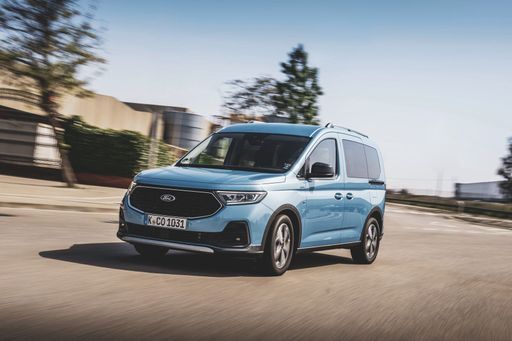 @ tourneoconnect.fordpresskits.com
@ tourneoconnect.fordpresskits.com
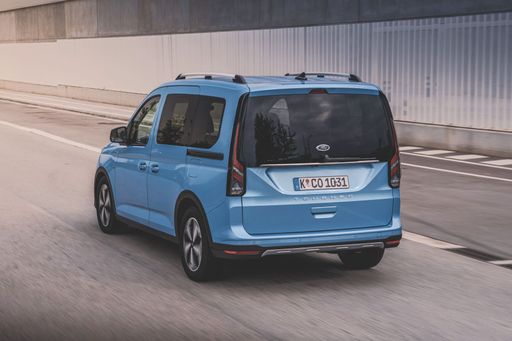 @ tourneoconnect.fordpresskits.com
@ tourneoconnect.fordpresskits.com
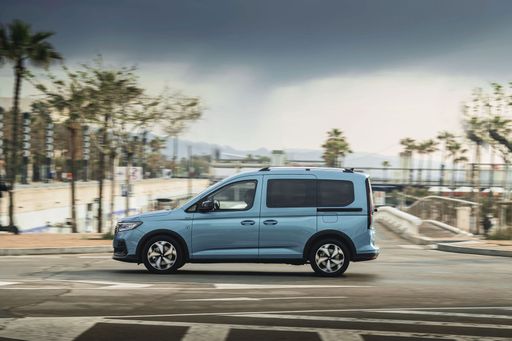 @ tourneoconnect.fordpresskits.com
@ tourneoconnect.fordpresskits.com
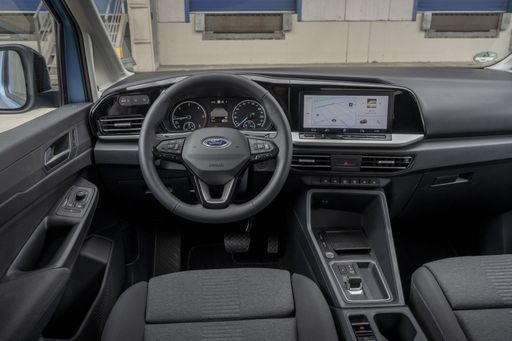 @ tourneoconnect.fordpresskits.com
@ tourneoconnect.fordpresskits.com
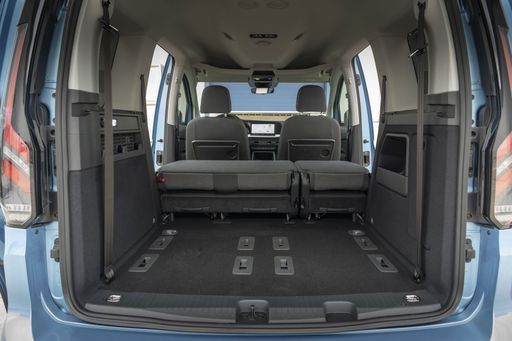 @ tourneoconnect.fordpresskits.com
@ tourneoconnect.fordpresskits.com

|

|
|
|
|
Costs and Consumption |
|
|---|---|
|
Price
23100 - 41600 £
|
Price
26900 - 41900 £
|
|
Consumption L/100km
4.5 - 6.9 L
|
Consumption L/100km
0.5 - 7 L
|
|
Consumption kWh/100km
14.6 - 16.8 kWh
|
Consumption kWh/100km
-
|
|
Electric Range
377 - 514 km
|
Electric Range
-
|
|
Battery Capacity
1.3 - 65.4 kWh
|
Battery Capacity
19.70 kWh
|
|
co2
0 - 157 g/km
|
co2
10 - 158 g/km
|
|
Fuel tank capacity
38 - 47 L
|
Fuel tank capacity
32 - 50 L
|
Dimensions and Body |
|
|---|---|
|
Body Type
SUV
|
Body Type
High Roof Estate
|
|
Seats
5
|
Seats
5
|
|
Doors
5
|
Doors
5
|
|
Curb weight
1370 - 1773 kg
|
Curb weight
1542 - 1709 kg
|
|
Trunk capacity
466 L
|
Trunk capacity
1213 - 1720 L
|
|
Length
4350 - 4385 mm
|
Length
4500 - 4868 mm
|
|
Width
1825 mm
|
Width
1855 mm
|
|
Height
1580 - 1585 mm
|
Height
1833 mm
|
|
Payload
420 - 490 kg
|
Payload
578 - 618 kg
|
Engine and Performance |
|
|---|---|
|
Engine Type
Petrol, Full Hybrid, Electric
|
Engine Type
Petrol, Diesel, Plugin Hybrid
|
|
Transmission
Manuel, Automatic
|
Transmission
Automatic, Manuel
|
|
Transmission Detail
Schaltgetriebe, Automat. Schaltgetriebe (Doppelkupplung)
|
Transmission Detail
Automat. Schaltgetriebe (Doppelkupplung), Schaltgetriebe
|
|
Drive Type
Front-Wheel Drive, All-Wheel Drive
|
Drive Type
Front-Wheel Drive
|
|
Power HP
100 - 218 HP
|
Power HP
102 - 150 HP
|
|
Acceleration 0-100km/h
7.8 - 13.3 s
|
Acceleration 0-100km/h
11.4 - 13.5 s
|
|
Max Speed
162 - 208 km/h
|
Max Speed
175 - 186 km/h
|
|
Torque
200 - 265 Nm
|
Torque
220 - 350 Nm
|
|
Number of Cylinders
3 - 4
|
Number of Cylinders
4
|
|
Power kW
74 - 160 kW
|
Power kW
75 - 110 kW
|
|
Engine capacity
998 - 1598 cm3
|
Engine capacity
1498 - 1968 cm3
|
General |
|
|---|---|
|
Model Year
2024
|
Model Year
2024
|
|
CO2 Efficiency Class
D, C, E, F, A
|
CO2 Efficiency Class
F, E, B
|
|
Brand
Hyundai
|
Brand
Ford
|
Hyundai Kona
The Hyundai Kona: A Comprehensive Overview
The Hyundai Kona has established itself as a standout in the compact SUV segment, blending innovation with performance and style. As the automotive world moves towards more sustainable and efficient options, the Kona offers a variety of powertrains, from traditional petrol engines to full hybrids and all-electric models.
Powertrain Options and Performance
The Hyundai Kona's powertrain choices cater to a wide range of preferences. For petrol enthusiasts, the Kona offers a 1.0L T-GDI engine, delivering 100 PS, and a more robust 1.6L T-GDI variant with up to 170 PS. Those looking for efficiency without sacrificing power can consider the full hybrid model, offering 129 PS and an impressive consumption of 4.5 L/100km.
For a greener option, the all-electric Kona provides a compelling case. With battery capacities of up to 65.4 kWh, the electric Kona offers power outputs of 156 to 218 PS, and efficiencies as low as 14.6 kWh/100km, enabling an electric range of up to 513 km.
Technical Specifications and Innovations
Built on a robust platform, the Kona delivers versatility and reliability. With a choice between manual or dual-clutch automatic gearboxes, along with options for front-wheel or all-wheel drive, the Kona ensures a tailored driving experience. The handling is enhanced by the car's lightweight construction, balancing a 1370 to 1773 kg curb weight with dynamic performance.
The Kona's design doesn't compromise cargo space for style; it offers a generous 466 L boot capacity. With a relatively compact body, measuring 4350 to 4385 mm in length, the Kona easily navigates urban environments while still commanding a strong road presence with its 1825 mm width.
Efficiency and Eco-Friendliness
Hyundai is committed to reducing emissions, as evidenced by the Kona's CO2 efficiency ratings, which range from class A for electric models to class D for some higher-performance petrol variants. The focus on reducing environmental impact without sacrificing driving pleasure is notable throughout the Kona range.
Costing and Value
The Hyundai Kona offers commendable value for money. Pricing starts at €26,400 and reaches up to €50,690, depending on the chosen configuration. The monthly running costs range from €956 to €1090, with a cost per kilometre of 38.3 to 43.6 cents, making it a competitive option in its class.
Conclusion: Modern, Efficient, and Versatile
The Hyundai Kona stands as a testament to Hyundai's commitment to innovation, efficiency, and practicality. Whether you are inclined towards a traditional combustion engine, a hybrid for a balance of power and efficiency, or a full electric model for maximum eco-friendliness, the Kona provides a tailored solution for each unique driver preference.
Ford Tourneo Connect
The Versatile Ford Tourneo Connect: Blending Utility with Modern Design
The Ford Tourneo Connect is a prime example of Ford's commitment to combining practicality with modern automotive technology. With its spacious interior, innovative features, and diverse engine selection, the Tourneo Connect is designed to meet the needs of families and businesses alike.
Engine Options and Performance
The Ford Tourneo Connect offers a range of efficient engines, including both petrol and diesel options. Buyers can choose between a 1.5 EcoBoost petrol engine or a 2.0 EcoBlue diesel engine, with power outputs ranging from 102 to 122 PS. The engines are coupled with either a manual or an advanced automatic transmission, providing flexibility and driving comfort. The diesel variants are particularly noteworthy for their fuel efficiency, clocking in as low as 5.4 L/100km, making long journeys more economical.
Spaciousness and Practicality
Designed as a high-roof MPV, the Tourneo Connect is well-suited for those who require ample space. It offers seating for up to five passengers and features a generous cargo capacity ranging from 1,213 to 1,720 litres, depending on seat configuration. For added practicality, the vehicle includes a range of adaptable storage solutions, making it easy to accommodate diverse passenger and cargo needs.
Innovative Technology
The Ford Tourneo Connect is not short on technology either. Its infotainment system is equipped with a user-friendly interface that supports smartphone integration, enhancing the driving experience with seamless navigation and media connectivity. Advanced driver assistance systems are also integrated, providing features such as adaptive cruise control and lane-keeping assistance, contributing to both safety and convenience.
Stylish Design and Comfort
While the Tourneo Connect is built for practicality, it doesn't compromise on style. The vehicle's sleek exterior lines and contemporary front grille design give it a sophisticated presence on the road. Inside, the choice between the Titanium Automatik, Trend, and Active Automatik trims offers a variety of comfort and convenience features, ensuring that every journey is as pleasurable as it is functional.
Impressive Specifications
Boasting a top speed of up to 186 km/h and a torque range of 220 to 320 Nm, the Ford Tourneo Connect strikes a fine balance between performance and economy. The vehicle is built to accommodate diverse driving needs, highlighted by its robust load capacity of up to 618 kg and a sizeable 50-litre fuel tank, which ensures fewer stops on long trips.
In conclusion, the Ford Tourneo Connect is a well-rounded vehicle that excels in delivering comfort, technology, and practicality. Whether for family outings or business use, it stands out as a reliable and versatile choice in its segment.
The prices and data displayed are estimates based on German list prices and may vary by country. This information is not legally binding.
